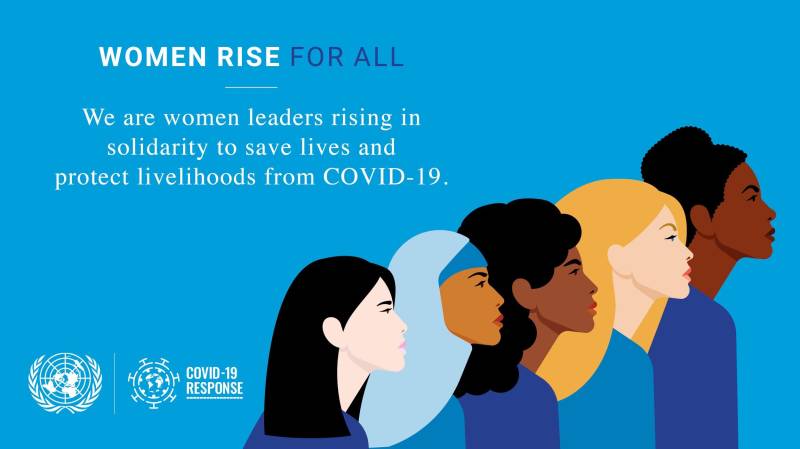COVID-19 has affected every single soul around the globe. Leading to a complete shutdown/lockdown has led to an increase in the number of problems and issues faced by women. Quarantine measures imposed as a response and way to protect people from COVID-19 are putting people specifically women and girls at a higher risk of violence at home (domestic abuse) both physically and mental. This outbreak has caused economic and social stress on the families due to which stress and anxiety levels are way higher than before. This puts women at a greater risk of exploitation at the hands of their families, specifically the male figures. Women in the urban areas who belong to the middle class, usually work to avoid the tense and claustrophobic environment of their household and sometimes they are the soul-earners of the family while the husband/brother/father sleep at home. Due to the lockdown, offices are also closed and most people are not getting their wages which leads to domestic abuse like hitting the woman for not earning or bringing money at home. This further leads to high levels of depression and anxiety in women, caused by unemployment and most importantly family pressure.
Living in a patriarchal society is never easy, men usually tend to take out their frustration on the women of the household as they are considered as the weaker beings. COVID-19 has forced people to stay indoors, limiting the number of activities leading to frustration and anger in the male population which they obviously take out by criticising, taunting and hitting their wives, daughters, sisters etc.
In the rural areas, the scenario is not so different as most of the time, the money is earned by the women of the family who work at other peoples’ houses. The government, when imposed the lockdown, asked people to send their workers back to their houses in order to prevent the spread of the disease. This led to unemployment in the rural sector as well, thus forcing the women to sit at home and get beaten at the hands of their drunk or drug-addict husbands. Most people did not give their maids, drivers etc a paid leave which has led to serious issues like having no other option but to die of starvation (no wages means no food at home). These people hit the women, hurl abuses at them or sometimes even kill them due to their economic and social depression. Other than that, people living in the rural areas are more at risk as they do not have proper health/medication facilities. A lack of masks, gloves, sanitation facilities, sanitizers, hospitals and isolation wards is what increases the risk of rural people getting infected more than the urban people. They are not educated and there are no proper guides in the villages, which means they tend to take COVID-19 not so seriously. Also,it is important to note that whenever there is a crisis, women are always targeted.
Conclusively, it is clear from the previous epidemics that during health problems/crisis, women take on additional physical, psychological and time burdens as caretakers. They also suffer the most because this patriarchal society will always look upon them as inferior beings, even if they were the ones who supported the whole family including the misogynists when there was no lockdown. Not to forget, most of the nurses and doctors attending to the COVID-19 patient are women.
(Zara sochiye!)






